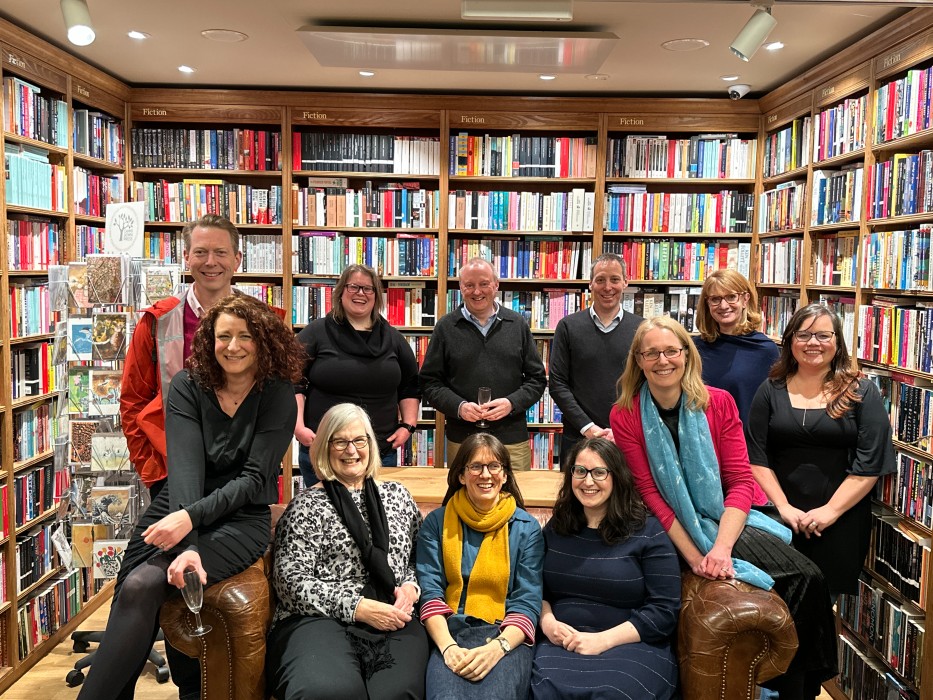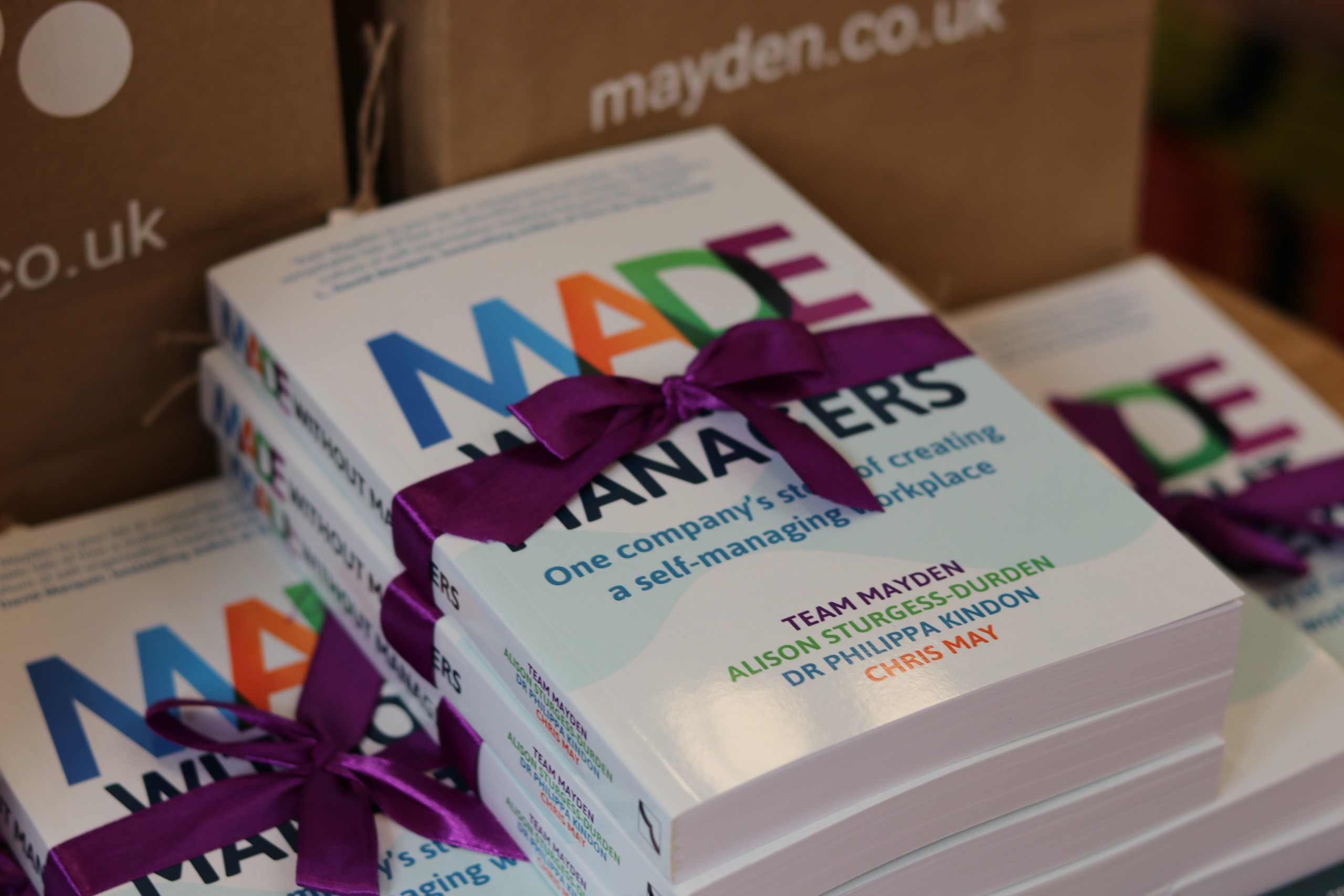When I happily handed over a copy of our book, Made Without Managers, to a longstanding friend recently, she looked at it admiringly and asked ‘So what was more painful, writing this, or writing your PhD?’ Straight away, the assumption was there that writing this book was in some way painful. And she was right. But why? And whilst it was painful, it was also incredibly worthwhile. It was rewarding and generated insight that we have been able to use to further our work on our way of working.
In this blog I wanted to take a moment to reflect and take a balanced view on the pros and cons of digging into our way of working in a way that enabled us to share our experiences in a book that we hope will be valuable to others.
New Ways of Working: Challenging the Status Quo
I am passionate about new ways of working that encourage us all to challenge the status quo of traditional people hierarchies. I also love working for Mayden, a company that is purpose driven to change what’s possible for clinicians and patients; in the world of data driven, outcomes focused, patient centred care. I enjoy the process of writing, researching, editing, critiquing and challenging myself to try new things and master new skills.
So, what better way of engaging in all these passions than capturing in a book some of the rewards and challenges of working in the way we do. Perhaps it is only fair to point to some of the challenges of writing itself.
Writing the book: Our self-managing organisation, flat structure and Agile principles
Firstly, writing is a discipline. A repetitive and time consuming discipline that takes you away from other things you think you should be doing. That constant niggle of … I should be attending to emails, I should be in my team meeting, I should be cooking dinner for the family. Writing requires more time than you have to give it. There are always other demands on your time. The discipline of sitting down, churning out the words, and then turning them into the right ones takes focus, discipline, and determination. These are not particular strengths of mine to be honest. But you knuckle down and you get it done.

Secondly, writing is linear. It has to have a beginning, a middle and an end for it to make sense to the reader. It has to have a consistent tone, structure, and shape that the reader can connect with in order to make sense and understand what’s going on. We set ourselves the ambitious target of writing a multi-vocal book, including stories, anecdotes and chapters written by several people, in their own voices, about emergent working practices. Believe me when I say the linear structure of a book falls well short of capturing the complexity of the interwoven web of stories, narratives, experiences, and recollections of what it’s like to work in a flat structure, self-managing organisation underpinned by Agile principles. We did our best, for sure. But some of the frustration arises from knowing that you’ve fallen short of being able to fully convey what it’s actually like, despite everyone’s best efforts.
Thirdly, it forces you to reflect and to be honest about your failings. We know we don’t get all of our ways of working ‘right’. We know that everyone can still feel frustrated, perplexed, bemused and befuddled. When your way of working is as much about mindset, ethos, values and principles as it is about processes, Agile, scrum frameworks, and scaffolding, it’s not always going to be clear to everyone, or play out in the way you expect. So to put our stories ‘out there’ without claiming to be experts in much beyond our own experience felt like a big vulnerable leap to take (Brene would be proud!).
Creating a place of work we all want to work in
Having said all that, writing about our ways of working has been hugely rewarding. Facing up to where we are falling short has given us a new lease of life on what we want to work on next in terms of iterating how we work and making it even better for individuals, teams and our customers. It’s reminded us of the neverending nature of working on our way of working and constantly striving to do better. It was also amazing to work with colleagues on a project that brought us together in new and interesting ways. We got to try new skills, and challenge ourselves to capture what we really wanted to share … not just daydream that we could do it, but actually bring it about and make it happen.

Finally, much like our way of working, we got to choose to be creative, to challenge ourselves and one another to really convey what we wanted to say. Keep it short. Be direct. Say what you want to say and move on. But saying enough to give readers what we hope is valuable food for thought. As we have come to describe it, as a conversation starter. Like our way of working, writing about our way of working wasn’t pain free, but it was hugely rewarding, exciting, interesting and challenging. It’s opening doors to new ways of thinking, new connections, and intriguing possibilities.
And in answer to my friend’s question, working on our book was much more enjoyable than writing the PhD because there was a fantastic team of colleagues working on it together. We genuinely hope it sparks interest and helps to move us all forward in creating working places we all want to work in.

Dr. Philippa Kindon has a PhD in Identity in the Workplace. She’s forever seeking new ways to improve our work and our processes, and to make Mayden the best company to work for.


